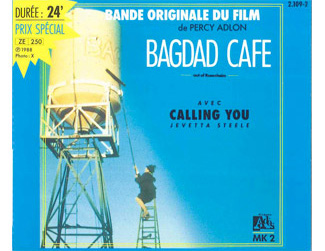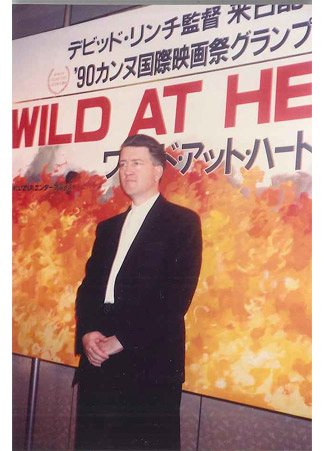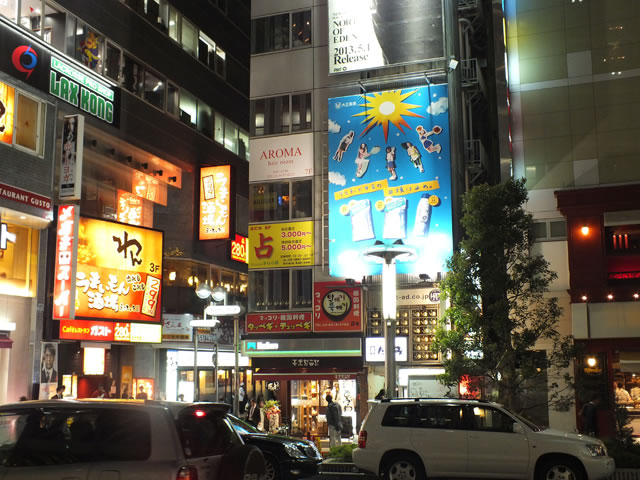![[Mini Theater Revisited] Part 8: The beginning of the “Shibuya Theater”, the blooming of the mini theater…Part 3: The music movie that changed the night in Shibuya, Part 2](https://cinemore.jp/images/0911f3c828596696a22605d9bf3101a56c56cf88e904aed6ba74e49a4b8c1230.jpg)
[Mini Theater Revisited] Part 8: The beginning of the “Shibuya Theater”, the blooming of the mini theater…Part 3: The music movie that changed the night in Shibuya, Part 2
``Bagdad Cafe'' and Lynch's works were also big hits.


◉“Bagdad Cafe” was a big hit along with the music. Director David Lynch came to Japan when ``Wild at Heart'' was released (photo from a press conference in the 1990s).
As the 1990s approached, Kuzui Enterprises further expanded its repertoire beyond the New York style and imported German director Percy Adlon's fantasy film ` `Bagdad Cafe '' (1987) to Japan. It's a heartwarming piece whose theme song, `` Calling You, '' will never leave your ears.
Regarding this film, Mr. Endo says, ``We were able to purchase the screening rights early because we were a company with many connections overseas.'' This work had a long run of about 4 months during Cinemarise, one of Shibuya's representative mini-theaters, and became one of the popular mini-theater works of the 1980s.
Furthermore, David Lynch's ` `Wild at Heart '' (1990) received financial support from a trading company, and an expanded daytime roadshow for the Toho network was also realized. This film and the Coen brothers' ` `Barton Fink '' (1991) both won the Palme d'Or, Cannes' grand prize. These works set the distribution company on a much bigger path (Mr. Endo and Mr. Ijichi left the company amidst the changes).
Other imports include director John Waters' masterpiece `` Hairspray '' (1988, later made into a musical version) and director Aki Kaurismäki's first film in Japan, `` Leningrad Cowboys Go America '' (1989). . The company had the foresight to select directors and was good at selling works with a pop flavor.
From the 1990s onward, the company began importing films such as the Tricolor trilogy (1993-1994) directed by the late Krzysztof Kieślowski, which became a hot topic in which popular European actresses such as Juliette Binoche and Julie Delpy co-starred. The film also expanded into women's lines, which is different from the previous period (released at Bunkamura Le Cinema).
They were always importing unique pieces, but as someone who knew the company's early days, it's hard to forget the scenes from the 1980s in a modest office in Shibuya, the company's origin.
We drink beer in a small room and talk about new music and movies, absorbing the energy of Tokyo as it heads towards the bubble economy. Then, I walk through the obscene air, relying on my intuition, looking for something shiny.
The afterimage of the streets of Shibuya in the 1980s still comes back to me every time I watch a Talking Heads live movie.

◉The building in Shibuya that once housed KUZUI Enterprises (center). Located near Bunkamura (photo taken in 2013).
Text: Sawako Omori
Movie journalist. His books include "Lost Cinema" (Kawade Shobo Shinsha) and other books, and his translations include "Woody", a biography of Woody Allen (written by D. Evanier, Kinema Junposha). Contributes to magazines such as ``Music Magazine'' and ``Kinema Junpo.'' A research book based on the web series, ``Mini Theater Revisited,'' is also scheduled to be published.
*This article was serialized on a website run by Geijutsu Shimbun between 2013 and 2014. This time, we have received permission from Sawako Omori and Geijutsu Shinbunsha Co., Ltd. to reprint this work. In addition, ``Mini Theater Revisited'' has been significantly revised, new interviews have been added, and it is scheduled to be published as a book by Artes Publishing in 2021.

